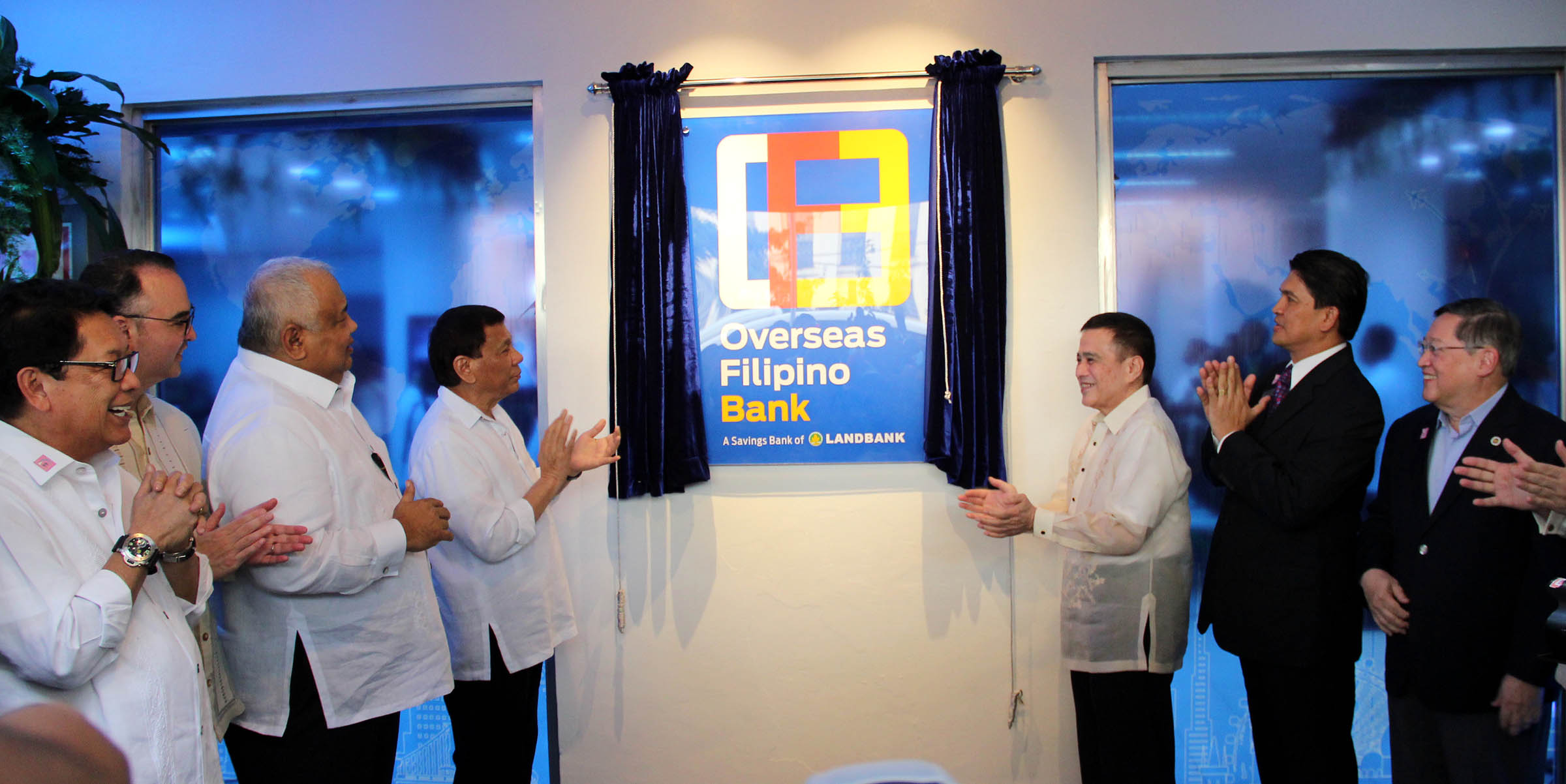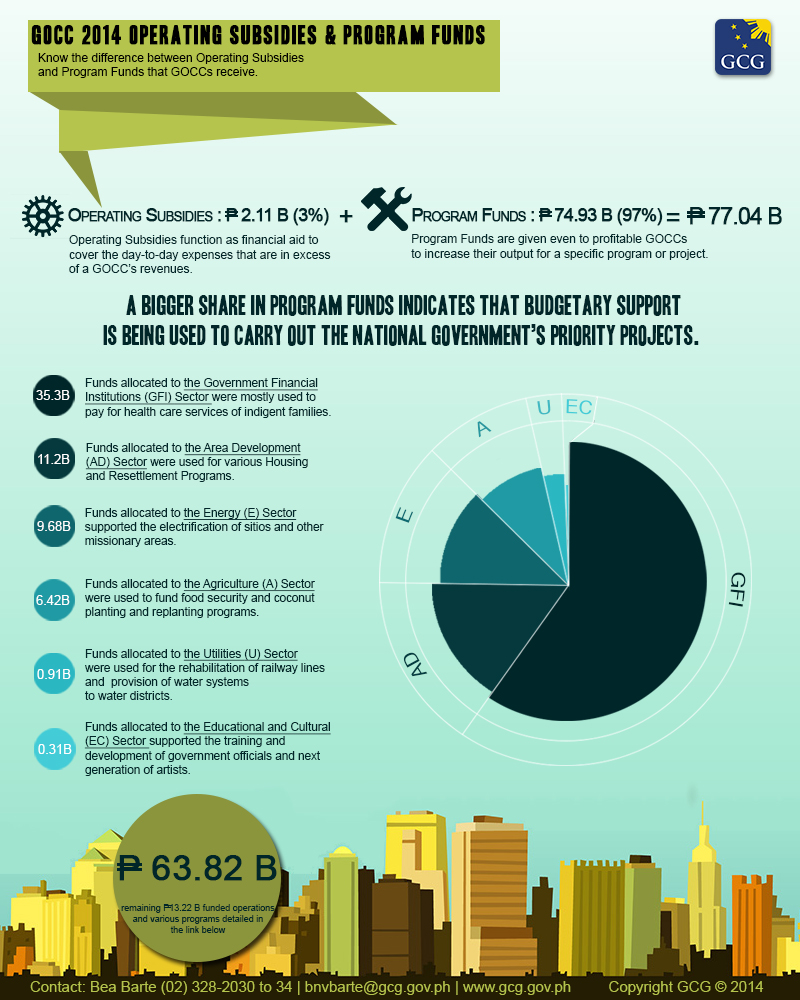|
Philippine Postal Savings Bank
The Overseas Filipino Bank (OFBank) is the state-owned digital-only, branchless bank in the Philippines. Formerly known as the Philippine Postal Savings Bank (PPSB) or PostBank, it is the smallest of the Philippines' three state-owned banks (the others being Land Bank of the Philippines and Development Bank of the Philippines), and is the 16th largest thrift banks in terms of assets. Its services are catered to the needs of Overseas Filipinos (OFs), Overseas Filipino Worker (OFWs), and their families or beneficiaries. Since 2018, it has been a subsidiary of LandBank. History Established as Philippine Postal Savings Bank in 1906, the bank was closed in 1976 as a result of competition with privately owned banks, but was reopened in 1994 pursuant to the provisions of Republic Act No. 7354, the charter of the Philippine Postal Corporation. In 2013, the bank rebranded its operations as "Postbank". Despite the legal affiliation, the PPSB is governed separately from PhilPost. On ... [...More Info...] [...Related Items...] OR: [Wikipedia] [Google] [Baidu] |
Government-owned And Controlled Corporation
In the Philippines, a government-owned and controlled corporation (GOCC), sometimes with an "and/or", is a state-owned enterprise that conducts both commercial and non-commercial activity. Examples of the latter would be the Government Service Insurance System (GSIS), a social security system for government employees. There are over 200 GOCCs as of 2020. GOCCs both receive subsidies and pay dividends to the national government. Under the GOCC Governance Act (Republic Act No. 10149; Government Owned and Controlled Corporations (GOCC) Governance Act of 2011), GOCCs are overseen by the Governance Commission for Government-Owned or Controlled Corporations (GCG). The Governance Commission is the "government's central advisory and oversight body over the public corporate sector" according to the Official Gazette of the Philippine government. The Governance Commission among other duties prepares for the president of the Philippines a shortlist of candidates for appointment by the presid ... [...More Info...] [...Related Items...] OR: [Wikipedia] [Google] [Baidu] |
The Manila Times
''The Manila Times'' is the oldest extant English language, English-language newspaper in the Philippines. It is published daily by The Manila Times Publishing Corp. (formerly La Vanguardia Publishing Corporation) with editorial and administrative offices at 2/F Sitio Grande Building, 409 A. Soriano Avenue, Intramuros, Manila. It was founded on October 11, 1898, shortly after news that the Treaty of Paris (1898), Treaty of Paris would be signed, ending the Spanish–American War and transferring the Philippines from Spanish to American sovereignty. It presently bills itself as having the fourth-largest circulation of the newspapers in the Philippines, beating the ''Manila Standard'', but still behind the ''Philippine Daily Inquirer'', the ''Manila Bulletin'' and ''The Philippine Star''. The current publisher, president and chief executive officer (CEO) and executive editor is Dante Francis "Klink" Ang II. On May 1, 2017, its chairman emeritus Dante Ang was appointed by President ... [...More Info...] [...Related Items...] OR: [Wikipedia] [Google] [Baidu] |
Companies Based In Manila
A company, abbreviated as co., is a legal entity representing an association of people, whether natural, legal or a mixture of both, with a specific objective. Company members share a common purpose and unite to achieve specific, declared goals. Companies take various forms, such as: * voluntary associations, which may include nonprofit organizations * business entities, whose aim is generating profit * financial entities and banks * programs or educational institutions A company can be created as a legal person so that the company itself has limited liability as members perform or fail to discharge their duty according to the publicly declared incorporation, or published policy. When a company closes, it may need to be liquidated to avoid further legal obligations. Companies may associate and collectively register themselves as new companies; the resulting entities are often known as corporate groups. Meanings and definitions A company can be defined as an "artificial per ... [...More Info...] [...Related Items...] OR: [Wikipedia] [Google] [Baidu] |
Postal System Of The Philippines
Postal may refer to: Places * The Italian name for Burgstall, South Tyrol in northern Italy * Postal, Missouri * Postal Square * Postal Museum (Liechtenstein), a postal museum in Vaduz, Liechtenstein People * Fred Postal, former co-owner of the Washington Senators of the American League * Paul Postal (born 1936), American linguist Arts and entertainment * ''Postal'' (franchise), a series of computer games launched in 1997 ** ''Postal'' (video game), first entry in the series ** ''Postal'' (film), a 2007 Uwe Boll-directed film based on the ''Postal'' computer game * ''Postal'' (comics), a comic book series written by Matt Hawkins and Bryan Hill Other uses * Postal code * Postal service, mail See also * Going postal (other) Going postal is the state of becoming uncontrollably angry, often to the point of violence. Going postal may also refer to: * '' Going Postal'', a 2004 novel by Terry Pratchett ** '' Terry Pratchett's Going Postal'', a 2010 telev ... [...More Info...] [...Related Items...] OR: [Wikipedia] [Google] [Baidu] |
Banks Of The Philippines
A bank is a financial institution that accepts deposits from the public and creates a demand deposit while simultaneously making loans. Lending activities can be directly performed by the bank or indirectly through capital markets. Because banks play an important role in financial stability and the economy of a country, most jurisdictions exercise a high degree of regulation over banks. Most countries have institutionalized a system known as fractional reserve banking, under which banks hold liquid assets equal to only a portion of their current liabilities. In addition to other regulations intended to ensure liquidity, banks are generally subject to minimum capital requirements based on an international set of capital standards, the Basel Accords. Banking in its modern sense evolved in the fourteenth century in the prosperous cities of Renaissance Italy but in many ways functioned as a continuation of ideas and concepts of credit and lending that had their roots in the anc ... [...More Info...] [...Related Items...] OR: [Wikipedia] [Google] [Baidu] |
List Of Banks In The Philippines
The Philippines has a comprehensive banking system encompassing various types of banks, from large universal banks to small rural banks and even non-banks. As of October 17, 2017, there were 36 universal and commercial banks, 57 savings banks, 492 rural banks, 40 credit unions and 6,267 non-banks with quasi-banking functions, all licensed by the Bangko Sentral ng Pilipinas (Central Bank of the Philippines) under the General Banking Act of 2000. On top of regular banking services offered by universal, commercial, thrift and rural banks, there are savings and loan associations which are mainly based in communities and among retirees in the armed forces and the police organization and other employees of the government of the Philippines. Prominent among these small savings services is the Armed Forces and Police Savings and Loan Association, Inc. (AFPSLAI), which is exclusive to active servicemen and retirees of the armed forces in the Philippines. List Universal and commercial ba ... [...More Info...] [...Related Items...] OR: [Wikipedia] [Google] [Baidu] |
Philippine Competition Commission
The Philippine Competition Commission (PhCC) is an independent, quasi-judicial body formed to implement the Philippine Competition Act (Republic Act No. 10667). The PhCC aims to promote and maintain market competition within the Philippines by regulating anti-competition behavior. The main role of the PhCC is to promote economic efficiency within the Philippine economy, ensuring fair and healthy market competition. The Philippine Competition Commission institutes a regulatory environment for market competition in order to protect consumers, whereby they are aimed to be given access to more options over what goods or services to patronize. It would also have the effect of creating competitive businesses that would encourage economic efficiency and innovation. The Philippine Competition Commission was formed on January 27, 2016. Since that time, the Philippine Competition Commission has formed offices through their mandate. __TOC__ History The Philippine Competition Act ( ... [...More Info...] [...Related Items...] OR: [Wikipedia] [Google] [Baidu] |
Central Bank
A central bank, reserve bank, or monetary authority is an institution that manages the currency and monetary policy of a country or monetary union, and oversees their commercial banking system. In contrast to a commercial bank, a central bank possesses a monopoly on increasing the monetary base. Most central banks also have supervisory and regulatory powers to ensure the stability of member institutions, to prevent bank runs, and to discourage reckless or fraudulent behavior by member banks. Central banks in most developed nations are institutionally independent from political interference. Still, limited control by the executive and legislative bodies exists. Activities of central banks Functions of a central bank usually include: * Monetary policy: by setting the official interest rate and controlling the money supply; *Financial stability: acting as a government's banker and as the bankers' bank ("lender of last resort"); * Reserve management: managing a country's ... [...More Info...] [...Related Items...] OR: [Wikipedia] [Google] [Baidu] |
Bangko Sentral Ng Pilipinas
The Bangko Sentral ng Pilipinas (; commonly abbreviated as BSP in both Filipino and English) is the central bank of the Philippines. It was established on July 3, 1993, pursuant to the provision of Republic Act 7653 or the New Central Bank Act of 1993 as amended by Republic Act 11211 or the New Central Bank Act of 2019. History American era and World War II In 1900, the First Philippine Commission passed Act No. 52, which placed all banks under the Bureau of the Treasury and authorizing the Insular Treasurer to supervise and examine banks and all banking activity. In 1929, the Department of Finance, through the Bureau of Banking, took over bank supervision. By 1933, a group of Filipinos had conceptualized a central bank for the Philippine Islands. It came up with the rudiments of a bill for the establishment of a central bank after a careful study of the economic provisions of the Hare–Hawes–Cutting Act, which would grant Philippine independence after 12 years, bu ... [...More Info...] [...Related Items...] OR: [Wikipedia] [Google] [Baidu] |
Overseas Filipino Workers
Overseas Filipino Worker (OFW) is a term often used to refer to Filipino migrant workers, people with Filipino citizenship who reside in another country for a limited period of employment. The number of these workers was roughly 1.77 million between April and September 2020. Of these, female workers comprised a larger portion, making up 59.6 percent, or 1.06 million. However, this number declined to 405.62 thousand between 2019 and 2020. Etymology The term "Overseas Filipino Worker" (OFW) was used as early as the 1990s to refer to Filipino migrant workers, when Republic Act 8042, also known as the Migrant Workers and Overseas Filipinos Act of 1995 was enacted. The term was officially adopted by the Philippine government when the Philippine Overseas Employment Administration (POEA) adopted the 2002 POEA Rules and Regulations Governing the Recruitment and Employment of Land-based Overseas Workers. Historically, particularly during the administration of President Ferdinand Marcos ... [...More Info...] [...Related Items...] OR: [Wikipedia] [Google] [Baidu] |






